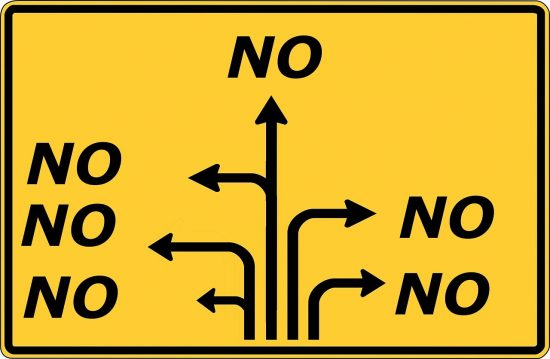
You’re pulling all-nighters for ungrateful customers. You’re struggling just to pay the bills – while your competitors are buying new homes and taking fancy vacations.
It can feel like you’re drowning. Not making progress, but doing everything you can just to stay afloat.
It’s no way to live…
But it’s the harsh reality a lot of freelancers and entrepreneurs face.
Things don’t have to be this way. You can earn more, and finally get paid what you’re worth.
Keep reading to find out how.
A Lot of It Is Our Own Fault
Way too many of us are underpaid. We put in sixty-hour work weeks. We work with people we don’t like – people who pay us a small fraction of what we’re really worth. Mostly we’re just tired… and desperate for a change.
Here’s the deal:
Most reasons why people don’t pay us enough are our fault.
In other words, are wounds are self-inflicted. We don’t realize that the way we run our businesses is actually driving customers to underpay. These behaviors become habits, which are deeply ingrained.
The good news is that, because we’re responsible for these actions, they’re within our power to change!
Common Patterns of Underpaid Entrepreneurs
Here are some of the most common reasons why customers aren’t paying you what you’re worth. Once you understand the major symptoms, it’s much easier to diagnose the issues and correct them in your own business.
You Treat Every Prospect the Same
Image credit: mastermind76
Every prospect is different. We run into problems when we pretend otherwise.
Here’s the raw truth: no matter how valuable your offer (and persuasive your marketing), there’s simply a good deal of people who won’t turn into customers.
That’s just the reality of doing business. A greater percentage of people you talk to won’t convert than the ones who will. But that’s okay; you don’t need to win everyone over to experience massive success.
By assuming that everyone will turn into a customer, we end up wasting time on the “tire kickers,” self-doubters, and skeptics who refuse to be converted. We could have spent all that time finding people who would become customers!
Here are a few reasons why some prospects will never become customers:
- Self-doubt
- Procrastination
- Skepticism
- They’re information addicts who aren’t really looking for a change
For all the great prospects who will devour your free content on their way to becoming customers, many others are in it for the freebies and nothing more.
These are the people who will email you with a zillion questions. They’ll demand free consultations and nickel and dime you about the price of every little thing. If you don’t screen them properly, they can really eat into your time and energy.
Most people who do this aren’t malicious. That can make it tough to turn them away. It happened to me; a few months back, I spent a good chunk of time giving advice to someone about starting up a business in wellness niche. She was a nice lady. Loved to chat on the phone. But as soon as I realized she would never get serious about hiring me, I had to cut her loose.
You might have to do the same. Don’t be afraid to put up a few barriers between yourself and potential customers. The sooner you accept that a certain percentage of people won’t ever become customers, the sooner you can weed them out and focus your efforts on more receptive prospects.
You Always Blame the Customer
Image credit: TusitaStudio
If you’re burnt out and stressed about paying your mortgage next week, it’s understandable that you’re looking for someone to blame.
It’s a lot easier to point the finger at your customers than turn it back toward yourself. If only they understood the value of what you had to offer! If only they didn’t doubt your judgment or waste your time!
A lot of us keep telling ourselves that we’ll “get to the good customers” eventually. We just have to trudge through a bunch of mediocre ones first.
This is shortsighted. Yes, a certain percentage of client and customers are – and always will be – unreasonable and not worth your time. But a much larger group might not be acting how you want (or paying what you deserve) because you haven’t communicated clearly or set reasonable expectations.
It’s time to accept responsibility for what’s within our power to change.
Instead of biting your lip next time someone asks for a seventh revision to the custom website you designed, why not refer them to your revision policy on your website?
Instead of picking up the phone during your dedicated family time, why not call them back the next morning during business hours?
A lot of wasted time and opportunities – things that cost you big money – come down to a lack of communication. Most people you’ll work with are reasonable. They just might not understand the most efficient way to work with you. Don’t be afraid to set clear expectations up front and stick to them!
You Don’t Trust in Your Ability to Create More Opportunities
Image credit: sasint
Ever find yourself hating a client?
I know I have. Usually it’s people you’ve worked with for months or even years. You always deliver on time. But the money is never enough. You end up resenting the entire process.
That’s a frustrating place to be. And it’s downright infuriating when you think about the opportunity cost. You could have spent all that time finding customers willing to pay what you’re worth. You could have had less stress and more money in your pockets too.
Well, I have some bad news for you:
It’s your fault.
Yep. Not a popular thing to hear, I know. It’s something I refused to admit to myself for my first 18 months in business…
But then it hit me. No one was forcing me to keep working these low-paying jobs. If I wanted to make room for better opportunities, I’d have to overcome my fear and let them go.
It seems like such a tough call – giving up steady income, even though it’s less than you’re worth. Yet it might be just what you need to free up time and energy to grow.
Trust in your ability to find other clients and customers. They’re out there. Keep doing quality work and marketing yourself, and you’ll connect with them eventually. It only takes a few big customers (or long-term retainers for service providers) to completely transform your financial situation.
You Let Prospects Position You (Instead of the Other Way Around)
Image credit: wendybkoon
You have a lot of value to offer. Maybe you just aren’t packaging and presenting it properly.
This is the sad fate of many entrepreneurs. Because their customers don’t understand the full extent of the benefits, they’re less inclined to pay high prices.
Without a strong brand and unique selling proposition (USP), you’re often reduced to a commodity.
Here’s how it works. Someone lands on your website. They don’t get a clear sense of the value you can create, so they turn to the only thing they can use to compare you with competitors: price. It’s a race to the bottom from there.
- What do you do?
- Whom do you help? (Instead of trying to serve “everyone,” it’s easier to position yourself as an expert within a niche market)
- Why should someone choose you instead of anyone else?
These are the three questions you must answer immediately. They’ll form the foundation of your USP, the copy on your website, and every interaction with prospects and customers.
If you don’t get proactive about how you position yourself in the market, your customers will do it for you. That’s a situation we want to avoid because people don’t have the time or inclination to decipher exactly why you’re the best choice.
You Don’t Sell Yourself
Image credit: HaiRobe
Are you allergic to selling?
Do you simply ignore it?
If so, it’s costing you a lot of money.
I’ve been there. I thought “selling” meant basically pestering someone until they whipped out their credit card because you wore them down. I didn’t want any part of it.
It doesn’t have to be that way, though. People’s increased skepticism of blatant sales pitches online is actually paving the way for more attractive alternatives. There are plenty of non-sleazy ways to introduce your offer to people in a compelling way.
A great offer is necessary, but not sufficient, for success!
Your prospects are busy. They have a zillion ways to distract themselves. There are texts to answer, Instagram accounts to check, and funny cat videos to watch. Expecting them to drop everything and figure out why you’re their best business choice is unrealistic.
Learning how to sell ethically and effectively will help you earn valuable attention. It gives you the luxury of turning the conversation to value instead of price, which is exactly what you need to do to justify higher rates.
Here are a few articles to help you get started:
- 5 Key Challenges of Selling (and How to Overcome Them)
- 6 Ways to Use Power Words to Sell Yourself
- How to Sell Your Services with Deeper Benefits
- Mastering the Art of the Up-Sell
You’re Afraid of Hearing “No”
Image credit: diema
Trying to please everyone?
Intimidated by conflict?
A lot of us are… but it’s no way to run a thriving business.
One reason why you might not be getting paid enough is you’re simply afraid of hearing “no.” It’s easier to stick to a safe price and not offend anyone.
Here’s another way to look at it: if you haven’t been rejected because your price is too high, maybe you aren’t pushing hard enough.
I’m not saying to raise your prices just to squeeze more out of your customers. I’m saying to consider the possibility that maybe the reason why you haven’t done so is a lack of confidence. Or good old fear.
What would happen if you doubled your prices tomorrow?
You might chase away a few prospects. But you might also land a few customers perfectly willing to pay those prices. You’d make more money and free up time to ensure you’re doing your best work.
Why not give it a try for a few weeks? Consider it an experiment, and track the effect on your income and working hours. You can always go back to your old pricing structure.
Remember, the worst thing they can do is say “no.” Once you hear that the first time and realize the sky isn’t falling, that you’re still all right and will find other customers, you might find yourself sticking with higher prices.
Over to You
Way too many of us aren’t making what we’re worth. It’s stressful, exhausting, and impossible to save money while growing our businesses.
The good news is that many of the reasons why we don’t earn enough are self-inflicted. If we can change our business philosophy, we can transform our bank accounts.
It’s time to stop working yourself ragged just to get by. It’s time to start getting paid what you’re worth.
Have you ever felt like you’ve been underpaid? How did you get out of that situation? Leave a comment below and share your experience!







